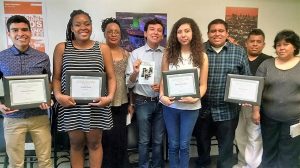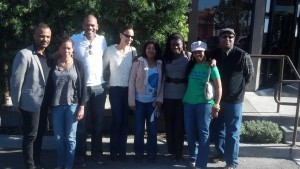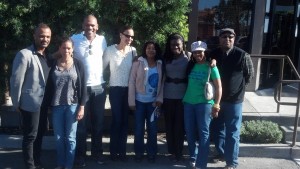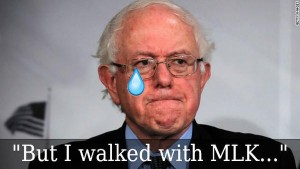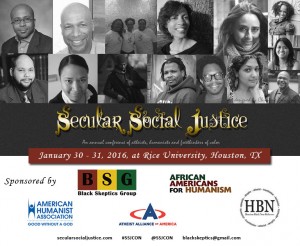By D Frederick Sparks

In July, Hillary Clinton was criticized for not wearing an American flag pin while delivering her acceptance speech as the first woman nominee of a major political party, even though I recall a huge American Flag being projected on the large screen behind her. Just a few weeks ago, Olympic gold medalist Gabby Douglas faced the wrath of social media patriots for not putting her hand over her heart during the playing of the national anthem. Now, San Francisco 49ers quarterback Colin Kaepernick has ignited a firestorm for his deliberate refusal to stand for the raising of the flag and the national anthem, which he explains was a protest against police brutality and other forms of persistent discrimination against African-Americans.
People who criticize what they see as disrespect to the symbols of patriotism endow these symbols with far-ranging meaning, from the over-arching ideals of American freedom and democracy, to a love of one’s fellow citizens, to an appreciation for those who have served/do serve in the U.S. armed forces.
And that is exactly how symbols function. They crystallize and communicate large concepts in a succinct and hopefully commonly understood manner. And when those concepts have particular emotional reverence for people, then a sentimental attachment to those symbols naturally follows.
I can personally relate to this. As many other married couples do, my husband and I exchanged rings on our wedding day that we wear daily. It is such a constant that most the time I don’t even notice it’s there, but one day a few months ago I realized it was gone. I panicked and was immediately distressed, as I thought about the happiness of our wedding day and the degree to which the ring represented that. I was relieved to find that it had slipped off and was nestled in the bed sheets.
But let’s say our wedding day was an unmitigated disaster, and our marriage was characterized by physical and emotional abuse , mistrust, and a lack of intimacy. How much sense would it make at that point to feel the same emotional resonance around the ring? And it would certainly be absurd for me to place MORE importance on the ring than on the nuts and bolts of the relationship that it supposedly symbolizes.
And that’s exactly how I view those critics who are apoplectic about these instances of “disrespect’ for the flag and the anthem. For those who say the flag represents our freedom, I say how do you feel about the fact that the state of North Carolina was caught red-handed attempting to make it more difficult for African-American voters to exercise their franchise? Have you expressed your outrage at the continued erosion of the 4th amendment protections against illegal search and seizure? I am more concerned with the state of our actual freedoms than with the ceremonial deference presumptively owed the putative symbols of those freedoms.
The “disrespect for our troops” line of attack is equally facile. Here’s how I think we should show respect for our troops: 1) Don’t risk their lives and limbs for bullshit reasons 2) Make sure they have everything they need when they return from combat. Many veterans and active military members are also speaking out on being used as pawns in the debate about the Kaepernick protest, with some parsing the difference between disagreeing with his stance and protecting his right to free speech, with others, particularly African-American soldiers, echoing their agreement with the issues he has attempted to highlight.
There is nothing inherently wrong with the use of symbols to represent cherished ideals. But the symbols should not be fetishized to the point that the symbol receives more attention than the underlying realities associated with the symbol.


